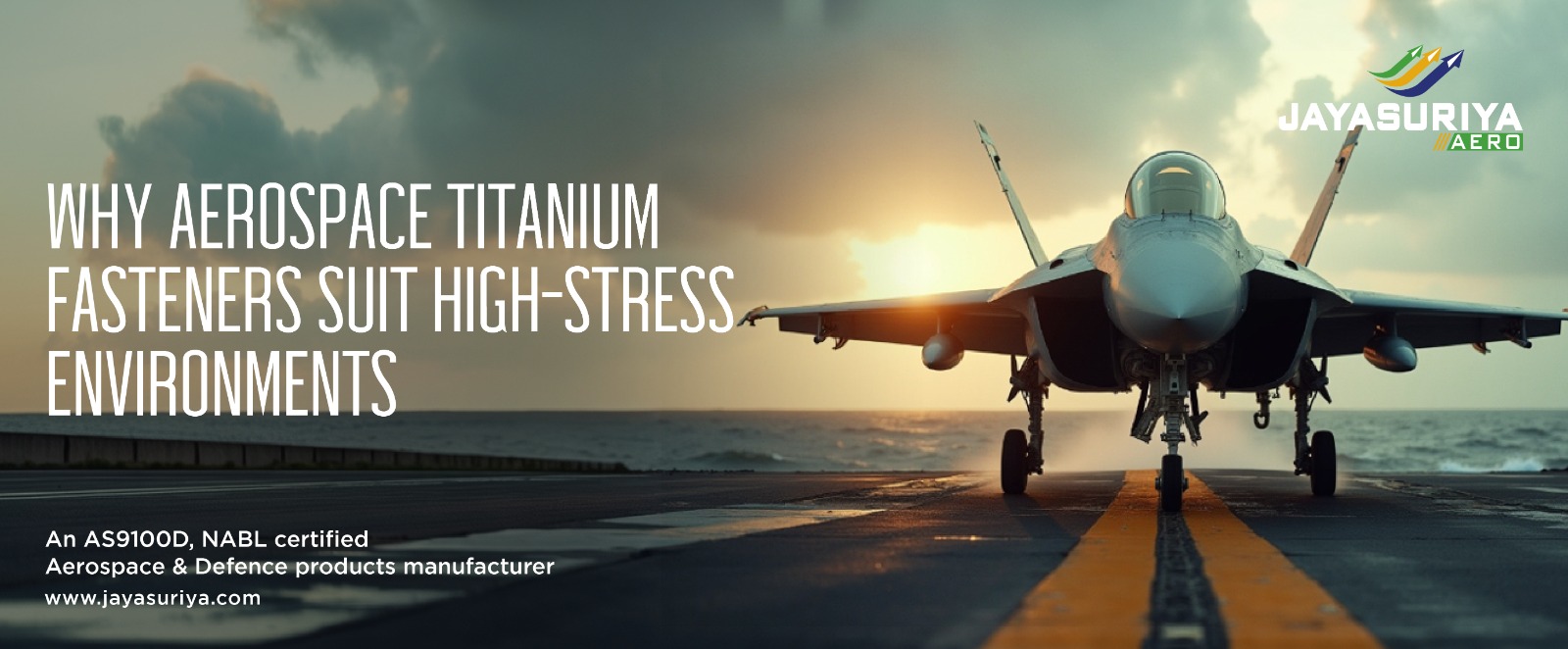In the world of aerospace engineering, the demand for materials that can withstand extreme conditions is paramount. Components used in aircraft and spacecraft must endure high stress, temperature fluctuations, corrosion, and fatigue while maintaining safety and performance. Among these critical components, fasteners play a vital role in ensuring structural integrity. Aerospace titanium fasteners have become the go-to choice for high-stress environments due to their unique combination of strength, durability, and lightweight properties. In this blog, we explore why aerospace titanium fasteners are ideal for such demanding applications and how they contribute to the safety and efficiency of aerospace vehicles.
Understanding High-Stress Environments in Aerospace
Before diving into the specifics of aerospace titanium fasteners, it’s important to understand what constitutes a high-stress environment in aerospace applications. Aircraft and spacecraft structures experience tremendous mechanical forces during takeoff, flight, landing, and in some cases, re-entry into the atmosphere. These forces include:
- Tensile and compressive stresses from aerodynamic loads
- Vibrations generated by engines and turbulence
- Thermal stresses caused by temperature variations at different altitudes
- Corrosive environments such as saltwater exposure and atmospheric pollutants
In such conditions, the fasteners that hold together the components must maintain their mechanical properties without failure. The choice of fastener material directly impacts the overall performance, safety, and longevity of the aerospace structure.
Why Titanium? The Material Advantage
Titanium is well-known for its exceptional material properties that make it highly suitable for aerospace applications. Here are the key advantages that titanium offers:
1. High Strength-to-Weight Ratio
One of the most critical factors in aerospace design is weight reduction to improve fuel efficiency and payload capacity. Titanium boasts an outstanding strength-to-weight ratio, being as strong as some steels but nearly 45% lighter. This characteristic enables aerospace engineers to design components that are both strong and lightweight.
2. Excellent Corrosion Resistance
Titanium naturally forms a thin oxide layer on its surface that protects it from corrosion. This makes aerospace titanium fasteners highly resistant to rust and degradation, even in harsh environments like saltwater exposure or chemical exposure during flight missions. This corrosion resistance extends the lifespan of fasteners, reducing maintenance needs.
3. Superior Fatigue Resistance
Aerospace components are subjected to repeated cyclic loading, which can cause fatigue failure over time. Titanium exhibits excellent fatigue resistance, meaning aerospace titanium fasteners maintain their structural integrity over many cycles of stress. This property is crucial for the safety of aircraft and spacecraft where component failure is not an option.
4. Ability to Withstand High Temperatures
Certain titanium alloys retain their strength at elevated temperatures better than many other metals. This allows titanium fasteners to perform reliably in areas close to engines or in parts exposed to atmospheric re-entry heat, where temperatures can soar dramatically.
Aerospace Titanium Fasteners: Designed for Performance
Fasteners might be small, but they are fundamental to the mechanical assembly of aerospace vehicles. The use of titanium in fasteners offers numerous benefits:
Lightweight without Compromising Strength
The use of aerospace titanium fasteners helps reduce the overall weight of the aircraft or spacecraft. This not only improves fuel efficiency but also increases payload capacity, both of which are critical in aerospace operations.
Enhanced Structural Integrity
Fasteners made from titanium provide reliable clamping force and resist loosening under vibration and thermal cycling. This ensures that critical components remain securely attached under demanding conditions.
Long-Term Durability and Reduced Maintenance
Due to their corrosion resistance and fatigue strength, titanium fasteners have a longer service life than many traditional fasteners made of steel or aluminum. This results in lower maintenance costs and improved safety margins.
Compatibility with Aerospace Alloys
Titanium fasteners are compatible with other aerospace-grade materials, including aluminum and composite structures. This prevents galvanic corrosion, which can occur when incompatible metals are used together, thereby protecting the overall structure.
Applications of Aerospace Titanium Fasteners in High-Stress Environments
1. Airframes and Structural Components
The airframe of an aircraft is subjected to constant stress during flight. Aerospace titanium fasteners are used extensively in assembling fuselage panels, wing structures, and control surfaces, where strength and weight savings are critical.
2. Engine Assemblies
Titanium fasteners are often used in engine components where high temperatures and vibrations are common. Their ability to withstand heat without losing strength makes them indispensable in jet engines and turbine assemblies.
3. Spacecraft and Satellites
In space applications, materials must endure not only mechanical stresses but also extreme thermal variations and radiation. Aerospace titanium fasteners are preferred for critical joints and assemblies in spacecraft and satellites due to their durability and resistance to harsh space conditions.
4. Landing Gear and Suspension Systems
Landing gear systems experience high impact loads during takeoff and landing. Aerospace titanium fasteners offer the strength and fatigue resistance necessary to withstand these stresses without failure.
The Future of Aerospace Fastening with Titanium
With the aerospace industry’s continued push towards lighter, stronger, and more durable materials, titanium fasteners are expected to play an even more significant role. Advances in titanium alloy development and manufacturing techniques such as precision machining and additive manufacturing are expanding the possibilities for aerospace titanium fasteners.
Furthermore, as newer aircraft increasingly incorporate composite materials, titanium fasteners offer a reliable solution to joining dissimilar materials without causing corrosion or damage.
Built for the Demands of Tomorrow’s Aerospace Missions
Aerospace titanium fasteners are perfectly suited for high-stress environments due to their exceptional strength-to-weight ratio, corrosion resistance, fatigue durability, and temperature tolerance. These properties ensure the safety, performance, and longevity of aerospace structures under the most demanding conditions. For manufacturers and aerospace engineers aiming to optimize aircraft and spacecraft design, titanium fasteners provide an unmatched combination of reliability and efficiency.
If you are looking for high-quality aerospace titanium fasteners that meet stringent industry standards, trust Jayasuriya for precision-engineered solutions that deliver performance when it matters most.

